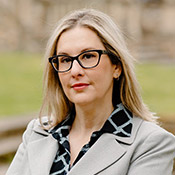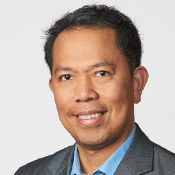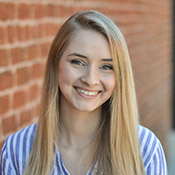ACSI Research Fellow Program
The Research Fellowship program at ACSI offers a unique opportunity for talented researchers to contribute to advancing the field of Christian education while addressing critical global challenges. By fostering collaboration, knowledge exchange, and innovative research, the program aims to make a significant impact on the world stage.
Program Aims:
- Create a vibrant and inclusive international research community.
- Foster collaboration, knowledge exchange, and innovative solutions to address both US and global challenges through research projects in Christian education.
Program Oversight:
- The fellows will collaboratively work with ACSI’s research department and Thought Leadership and the Research Director will oversee the program.
ACSI Fellows Collaborate on Research to Advance Faith-Based Education
ACSI Fellows collaborate with the Thought Leadership team (Research Department) to develop research and Working Papers on important topics in education, spirituality, and culture, focusing on their impact within the realm of Christian education. Their work addresses current trends and challenges, offering valuable insights for advancing faith-based learning.

RiB is a biannual publication by ACSI, aimed at sharing the latest research findings and insights on the Christian school sector. It is available exclusively to ACSI member school and is managed by ACSI Director of Research.

Lynn Swaner Ed.D.
President of Cardus USA – ACSI Senior Research Fellow

Matthew Lee, Ph.D.
Clinical Assistant Professor of Economics at Kennesaw State University - ACSI Senior Research Fellow

Francis Ben, Ph.D.
Associate Professor & Head of Postgraduate Coursework and Research at Tabor College Adelaide Australia – ACSI Global Research Fellow

Alison Heape Johnson
PhD candidate at the University of Arkansas – ACSI Junior Research Fellow
Eligibility:
- Understanding of Christian education.
- Strong academic credentials (e.g., relevant degrees, publications, minimum a Ph.D. candidate in education programs for Junior Fellow and a Ph.D. or Ed.D. for Senior Fellow).
- Demonstrated research excellence.
- Experience in international research collaboration.
- Excellent English communication skills.
- Minimum five years experience of doing research.
Nomination and selection process:
- The selection of the fellows is done through ACSI’s internal nomination.
It Takes a Village to Form a Christian Scholar
I can still recall my nervousness as I taught my first classes at a Christian college. I was well-educated in electrical engineering at a large secular university, which is to say I was not well-educated in anything else. I had spent many years being catechized to think like an engineer, but faith remained largely peripheral to my studies. I was a Christian who was a scholar, but not yet a Christian scholar. And yet there I was, a new faculty member expected to “integrate faith” in the classroom. I wince when I recall my first feeble attempts at faith integration—urging my computer science students to march into their careers and “transform technology” for God’s kingdom. It was a ringing phrase, but the content was admittedly thin. In those early days, I fear I sometimes offered my students stones for bread.
To be sure, developing as a Christian scholar can occur through reading good books, but my most fruitful growth occurred in the context of relationships. As a new faculty member, still wet behind the ears, I benefited from conversations with other faculty around a variety of books that laid out a compelling vision for Christian scholarship. Like iron sharpening iron, I was stimulated through cross-disciplinary conversations with colleagues in philosophy, theology, social sciences, humanities, and the arts. These experiences were hosted by a faculty development leader and lubricated by coffee and cookies with dedicated time and space.
These formal interactions were complemented by informal conversations in the hallways, the coffee shop, and sometimes the living rooms of colleagues. At one university, I met informally with a group of colleagues for years as we worked our way through one book after another in animated dialogue. Another university provided funding and food for faculty to meet over a book discussion and even provided funds for the author to come and speak with us. At my current institution, I enjoy book discussions led by a wise emeritus faculty member.
After serving at three different Christian universities, I have become absolutely convinced that a culture of fruitful collegial interactions is not automatic but requires intentionality to avoid the natural slide into disciplinary silos.
As a new faculty member, I was grateful to be assigned a wise mentor. This mentor showed care, became a trusted conversation partner, and offered sage advice as I navigated my way in my new vocation. He remains a good friend. Being a Christian scholar is not just about Christian teaching and scholarship but about living out one’s faith within the institution and more broadly. A Christian scholar cannot simply be “book smart.” Love and other Christian virtues are not just abstract concepts but need to be practiced in community. “If I speak in the tongues of men or of angels, but do not have love, I am only a resounding gong or a clanging cymbal” (1 Cor. 13:1). To be plausible, a Christian scholar must also model faith integration in how they interact with staff, students, colleagues in other departments, committee meetings, administrative decision-making, budgeting, and when contentious issues arise. I found a mentor who could not only articulate a Christian world-and-life view but also one whose life incarnated that worldview.
I also grew from interactions with others in my field through Christian disciplinary organizations and conferences. For me, the Association of Christians in the Mathematical Sciences (ACMS), the Christian Engineering Society (CES), and the American Scientific Affiliation (ASA) connected me with a wide network of Christian scholars. These networks exposed me to insights from other Christian traditions and the “prior work” of faith integration in my field. I was able to join a rich, ongoing dialogue with people who were working in the same vineyard and puzzling through the same disciplinary questions that I was. Many of these connections have since become close friends and collaborators.
Many Christian scholars can testify to the gift of other people in their lives, including pastors, former teachers, and friends. For me, that person was my wife, Carina. My first encounter with Christian higher education came when we were dating: I was an undergraduate engineering student at a large secular university while she was attending a Christian college. I could sense that the culture, ethos, and worldview at a Christian college were quite different from what I was experiencing. Later, Carina and I were married, and one of the wedding vows we exchanged was a promise to encourage each other “to develop the gifts that God had given us.” This she surely did. Sitting in a cubicle farm as a young engineer, I began to wrestle with what faith had to do with my work. Carina shared with me the Christian world-and-life view she had learned in college.
Carina encouraged me to pursue a call into Christian higher education, even though it would be far less lucrative than engineering. We had three kids and a mortgage, but she readily agreed, after much prayer, that I should quit my engineering job, return to get my Ph.D., and pursue teaching. Eventually, I landed my first position at the very college where we had met. My employment in Christian higher education was not without upheavals, requiring a move from Redeemer University to Dordt University and later to Calvin University. Throughout these transitions, Carina remained a wise conversation partner, providing valuable feedback on much of my Christian scholarship. Sadly, Carina passed away in December 2023, but I remain profoundly grateful to God for her. She was the most precious gift God has given me, next to my own life and salvation. Who knows, without her I may still be puzzling how to serve God in a cubicle farm somewhere.
While my own personal journey developing as a Christian scholar is unique, I strongly believe that it takes a village to form a Christian scholar. Aside from personal influences in one’s life, Christian universities that are serious about their mission must be intentional about faculty development and create a culture of working towards the shared project of Christian teaching and scholarship.
This article first appeared in the Christian Scholar’s Review Blog and is reposted with permission.




Leave a comment